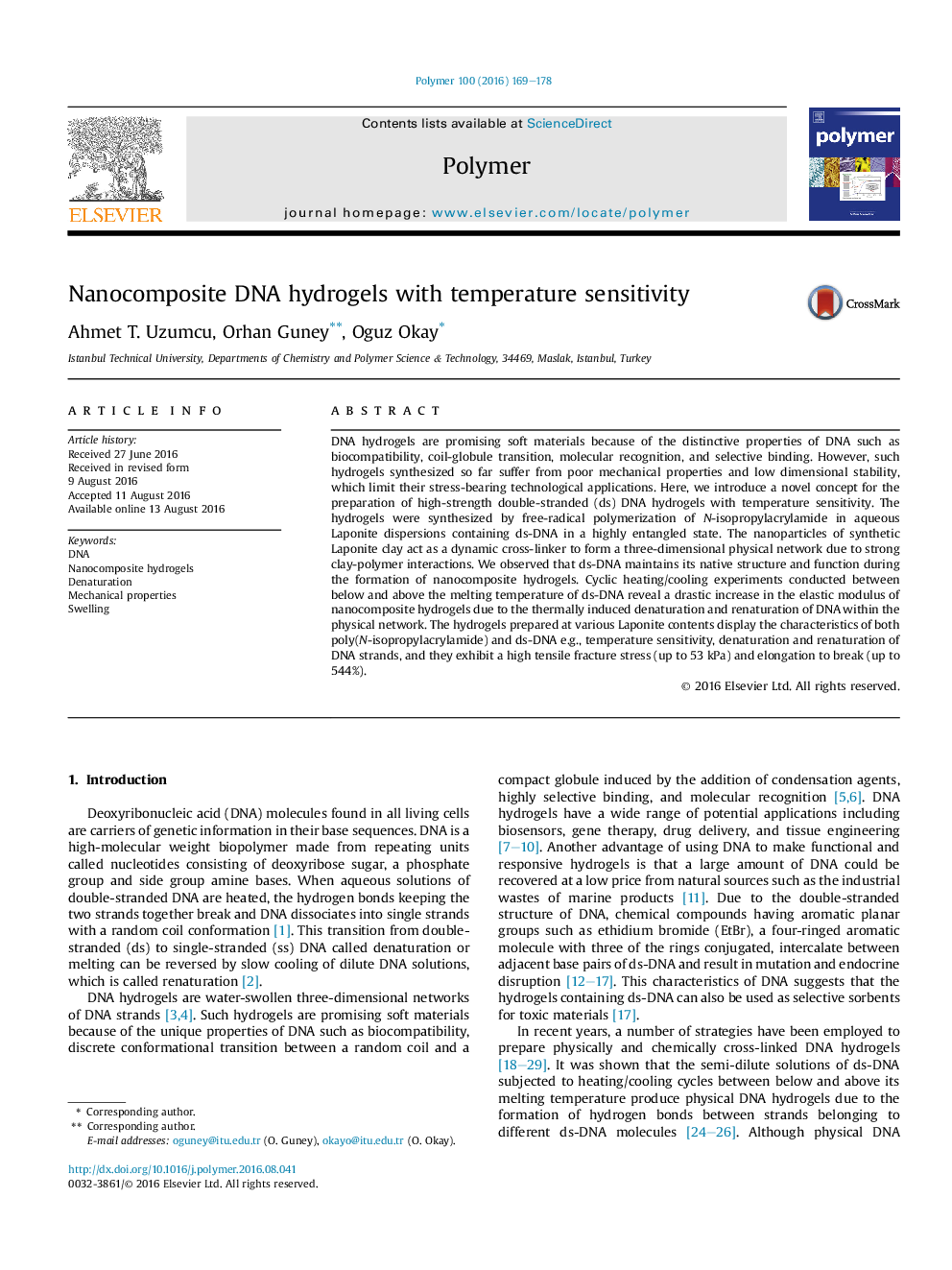| کد مقاله | کد نشریه | سال انتشار | مقاله انگلیسی | نسخه تمام متن |
|---|---|---|---|---|
| 5178952 | 1502506 | 2016 | 10 صفحه PDF | دانلود رایگان |

- Nanocomposite hydrogels based on DNA and poly(N-isopropylacrylamide) (PNIPA) are prepared.
- DNA maintains its native structure and function in the hydrogels.
- The hydrogels display the characteristics of both PNIPA and DNA.
- They exhibit a high tensile fracture stress (up to 53Â kPa) and elongation to break (up to 544%).
DNA hydrogels are promising soft materials because of the distinctive properties of DNA such as biocompatibility, coil-globule transition, molecular recognition, and selective binding. However, such hydrogels synthesized so far suffer from poor mechanical properties and low dimensional stability, which limit their stress-bearing technological applications. Here, we introduce a novel concept for the preparation of high-strength double-stranded (ds) DNA hydrogels with temperature sensitivity. The hydrogels were synthesized by free-radical polymerization of N-isopropylacrylamide in aqueous Laponite dispersions containing ds-DNA in a highly entangled state. The nanoparticles of synthetic Laponite clay act as a dynamic cross-linker to form a three-dimensional physical network due to strong clay-polymer interactions. We observed that ds-DNA maintains its native structure and function during the formation of nanocomposite hydrogels. Cyclic heating/cooling experiments conducted between below and above the melting temperature of ds-DNA reveal a drastic increase in the elastic modulus of nanocomposite hydrogels due to the thermally induced denaturation and renaturation of DNA within the physical network. The hydrogels prepared at various Laponite contents display the characteristics of both poly(N-isopropylacrylamide) and ds-DNA e.g., temperature sensitivity, denaturation and renaturation of DNA strands, and they exhibit a high tensile fracture stress (up to 53Â kPa) and elongation to break (up to 544%).
286
Journal: Polymer - Volume 100, 25 September 2016, Pages 169-178